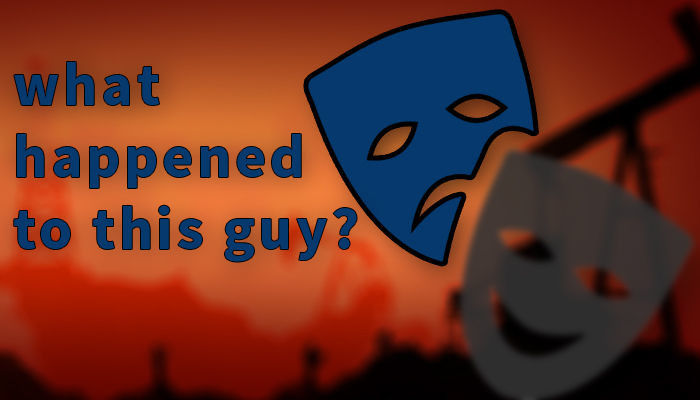
To put it simply, a tragic story is the one that doesn’t have a happy end. But it’s more than that. In a common story we expect a hero to go through hardships to find new perspective and knowledge, so that s/he can overcome the challenges. Or that the hero should just punch harder to win. A tragedy, however, is a story where the hero denies to learn from experience, doesn’t have the capacity to realize how to change, or changes too late. Or if the hero is fighting the good fight and is good at heart, the evil is too big for him/her, the system and challenges too powerful to overcome. It’s something that goes against the common narrative that we are very used to, that stems from the Christian mindset that God sends us only those challenges that we can endure, but these stories were much more valid in Ancient Greek theaters. In my opinion, tragedy has the strongest ability to connect with the audience on an emotional level, and leave a longer lasting mark allowing us to properly reflect upon the ideas presented, the story, the characters and the world, and most importantly, our humanity. But in order for that to happen the audience has to bare their guard of cynicism, which is of great challenge for the storyteller. There is a danger of putting your trust into the wrong hands so the audience isn’t willing to do that. The storyteller has to carefully earn the empathy of the audience to the protagonist and never break that connection, guiding and anticipating the audience’s reactions at every step of the way. It’s a very fine line to walk, and if you make a wrong step you will lose your audience’s trust completely. There is a few successful tragic stories on screen, the recent one that comes to mind is There Will Be Blood, where the hero denies to confess till the end. But I wanted to know if there are more that you can recommend to watch, as well as bad examples that fail to connect to the audience, and any theories on tragic storytelling.



1 person likes this
I completely agree with you. The films that have storylines where the protagonist always overcomes every obstacle is so unlike real life. I can see the need to want to satisfy with a happy ending, but how can the viewer relate. I always write stories that have a tragedy, there is rarely a happily ever after. My readers, from my novels that I wrote, know they need a box of tissues to be handy. I include the death of a friend, death of an infant, betrayal, revenge, and loss of a loved one. I think you and I would well together.
1 person likes this
Working on one right now. The main character has to die, 'cuz that's what happened. It's a tragedy, yes, but I think the overall message is uplifting. But of course, the scene at the climax when he dies is very sad.
1 person likes this
Happy end stories are very valid, but I feel they have an overwhelming presence in films. Great that there are other writers who embark on tragedy. My question: is there a tip that you learned about gaining/losing your audience's trust?
1 person likes this
Shakespeare wrote tragedies and comedies (comedies = happy endings). Not too many demanded their money back, I don't suspect. I think it's the market we're in. Maybe tragedies will make a comeback!
1 person likes this
Maybe because, for the most part, the modern world is such a sad and tragic place....filmmakers in general and for the most part want to give people powerful dramas that are based in tragedy, but are still uplifiting stories - and especially because that's what audiences demand? Just look at some of the Oscar films of 2015. The Big Short and Spotlight - based in tragedies that still carry on to this day. The Revenant, The Danish Girl, 45 Years, War Room, Concussion, Brooklyn, Carol, 13 Hours....man....those are some seriously tragic films. Maybe everyone doesn't die at the end....but those are some seriously tragic films.
1 person likes this
I Think the market really changes as the world changes itself. Why are comedies and "happy ending movies", as you call it, Vladislav, so popular and have been for years now is a reflection of people´s /viewer´s lives. The world is a mess right now. All these bad and inhuman things are going on and people are tired of turning on the TV and hearing about all the darkness and evil. So when they have a night off, what do they wanna go out and pay money to see? Yeah, something light, something that gets their mind off of their daily troubles. I think it´s not the matter of there not being good enough tragic and moving stories but more a question of percentages being produced between the two genres, if you will. There is more demand right now for "funny" - especially since the TV world is blooming and there are all kind of series made and in the works and popping out every day, really. So ideas are kind of also tested through the world of TV as well. Essentially, people of the world need happy endings, the world itself, I believe need those happy endings.
2 people like this
And I agree with Bill, by the way. Award winning movies are by far mostly tragedies or heavy dramas. For good reason too because they make for a compelling story and if executed well, the Oscar is yours. (I am simplifying of course). Such a story can be a happy end story just because it gives you hope and teaches you something, and moves you in a way you haven´t been moved yet.
1 person likes this
It's great to hear feedback from fellow writers and filmmakers. I think I need to clarify a little bit on what I think constitutes tragedy. The hero dying in the end doesn't mean the story is tragic if the said hero accomplishes his or her goal. Edge of Tomorrow is not a tragedy, neither Armageddon, since they sacrifice themselves for the success of the whole. The Big Short, Spotlight, The Revenant, The Danish Girl (I haven't seen the others Bill posted) are not "seriously tragic films", because every protagonist reaches their objective. A good example of this idea would be Kubrick's quote about Schindler's List: when asked about his thoughts on the movie, he said that the film is innately flawed, since it is not about the Holocaust, it's about a success story. So in the same way, Spotlight is a film not about pedophilia in Boston churches, it's about a success story of a group of journalists.
2 people like this
What's interesting to me about all of your thoughtful posts is the story within the real story. People like happy endings and uplifting films. Posts here have described why that is so - the world and their lives are tragic. So they seek out respites from their lives by viewing hopeful movies. My point is this: the tragedy in truly tragic movies can only be achieved when hope is also present. A tragedy film is brilliant, and the audience trust is maintained, only when the characters bounce between failure (or adversity) and hope. How it ends is sometimes death, but I think a character living with tragedy, punctuated by hope, is the more tragic ending.
1 person likes this
Vlad - you've covered a lot of ground in your original post and subsequent thoughts. If I'm reading your viewpoint (and Kubrick's) correctly, you believe that if the hero doesn't accomplish "the goal", then it's a tragedy. I can see how, in its purest form, that can constitute "tragedy." At the same time, though, I think a film or novel can have a hero achieving their goal, and that the piece of work can still be considered a tragedy - at least in broader terms - and especially when the whole purpose of existence of that film or novel addreses a tragedy that had occurred (real or imagined). Yes, the journalists in Spotlight accomplished their goals, but the story, in a broader and more real sense, is still quite a tragedy to the thousands of victims around the country; to the families who abandoned the church as a result of the evil committed by some dispicable priests; and to the archdioceses across America that lost their good standings in the communities, including the many that filed for bankruptcies as a result of the lawsuits. And in Schindler's List - Schindler sadly states at the end "I could have got more." Even though he saved many, he still felt like...he could have got more. Triumph, or tragedy? Or both? In any event....what a seriously tragic film based on a seriously tragic event/series of events. I'm not arguing with you, or Kubrick, but sometimes....people's beliefs on concepts like defining tragedy aren't so absolutely right in the light, and especially when shadows exist all around.